International
Costa Rica’s Foreign Minister, Arnoldo André, considers running to lead the OAS
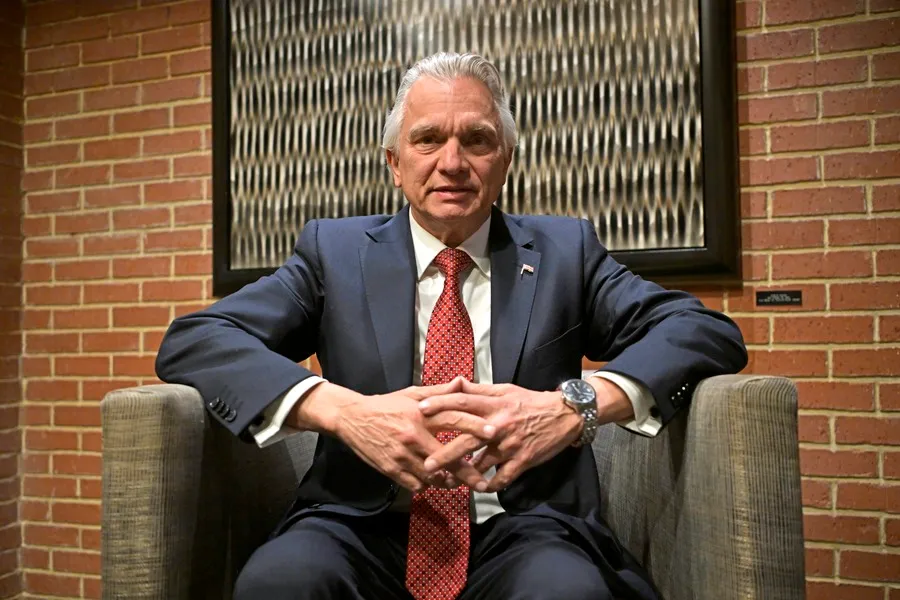
The Foreign Minister of Costa Rica, Arnoldo André, is considering running for secretary general of the Organization of American States (OAS) because he does not detect that neither of the two current candidates, from Suriname and Paraguay, has reached an “excited majority” in his favor.
This was stated in an interview with EFE by the Costa Rican diplomat, who attended the Permanent Council of the OAS in Washington on Monday, where the Surinamese Foreign Minister, Albert Ramdin, and the Paraguayan, Rubén Ramírez Lezcano, presented their candidacies.
“We feel, from what other countries have also told us, that neither of the two candidacies has reached an excited majority today that favors them with the necessary 18 votes,” he said.
“Costa Rica has said that if there is a need for a third consensus candidate, we can be willing to occupy that responsibility if the others want it,” he added.
According to André, several member states of the OAS have consulted him “with interest” whether he will take that step, but the chancellor said that there is still time left until the March 10 election.
Regarding the situation in Venezuela, he said that the Government of Costa Rica has been very clear in recognizing “the electoral victory” of the opponent Edmundo González Urrutia and “the defeat of Nicolás Maduro at the polls.”
André recalled that the OAS “is based on a system of democratic government” and remarked that “it is appropriate to insist that all the peoples of the Americas, not only Venezuela, conform to the inter-American system of respect for human rights.”
At the same time, he opined that “dialogue should never be eliminated” with Venezuela and pointed out that “at this time, even if it is not democratic and can be called a de facto government,” the power is held by Nicolás Maduro.
“It is necessary to reopen dialogue and it is necessary for Venezuela to accept the return of its citizens; there are more than seven million Venezuelan citizens who have left their homeland and wish to return,” he said.
The foreign minister concludes his trip to Washington this Wednesday, where he met with officials and congressmen, a few days after Marco Rubio, Secretary of State of the new Donald Trump Administration, visited Costa Rica during his tour of Central America in search of migration cooperation.
“Costa Rica is an ally of the United States,” remarked André, who revealed that Rubio said during his visit that the Costa Rican government has “an adequate migration policy.”
Costa Rica has 5.2 million inhabitants, of which one million are migrants, largely Nicaraguans who left their country, and it is also a land of passage for people heading north.
According to André, his government has been “conversing” for some time with the United States about the possibility of introducing flights to repatriate migrants who are in Costa Rica, as Panama does.
“We have not implemented repatriation flights but we do not rule out that they can be introduced,” said the chancellor, who pointed out that these would be “mainly voluntary” and would never be returned to “politically persecuted.”
Regarding China’s influence in the region, another concern of the Trump Administration, the foreign minister pointed out that Costa Rica has “good and fluid” relations with the Asian giant.
But he also admitted that there is “a big point of discord” about the deployment of the 5G network, since Costa Rica decreed that the suppliers must be from signatory countries of the Budapest Convention on Cybercrime, which excludes the Chinese Huawei.
The foreign minister stated that Costa Rica sees “with prudence and patience” Trump’s controversial statements about recovering the Panama Canal or annexing Canada and Greenland to the United States.
According to André, they are “spontaneous manifestations” that are part of the Republican’s “transactional style” to negotiate.
“Hapily, in the case of Costa Rica, in none of the issues we discussed with the Secretary of State there was no discord, so they did not raise any explicit request or complaint,” he said.
International
Colombia: Search continues for missing limb of italian scientist found dismembered

Rescue teams and Colombian authorities continued their search on Tuesday for the missing left leg of Italian biologist Alessandro Coatti, whose dismembered body was found in the Caribbean city of Santa Marta.
Coatti, 42, was a molecular biologist who had been traveling through South America after working for eight years at the Royal Society of Biology (RSB) in London.
He had been staying in a hotel in Santa Marta since April 3 and was later reported missing. His dismembered body began to be discovered on April 6, when parts were found inside a suitcase abandoned near a football stadium in an area known as Bureche.
“We’re conducting the search along the riverbanks and in the water to identify possible spots where, due to the river’s current, the missing left leg might be located,” Karlotz Omaña García, director of the Magdalena Civil Defense, told The Associated Press. Despite covering a 500-meter radius, the limb was not found.
Authorities have not named any suspects or shared possible motives. A reward of more than $11,000 has been offered for information leading to those responsible for the foreign scientist’s murder.
Police continue to reconstruct Coatti’s final movements. According to Colonel Jaime Ríos, head of the Santa Marta Metropolitan Police, the Italian biologist arrived in Colombia in January and had visited several locations, including Medellín, before traveling to Santa Marta.
Security footage shows Coatti was in downtown Santa Marta the night before his body was found, the colonel added.
Santa Marta, a popular Caribbean tourist destination, is known for its clear beaches. Police believe Coatti may also have visited Tayrona Park, a protected coastal area located about 34 kilometers (21 miles) from the city center.
International
MPV Denounces Electoral Blockade as Secretary-General is Disqualified for May Elections
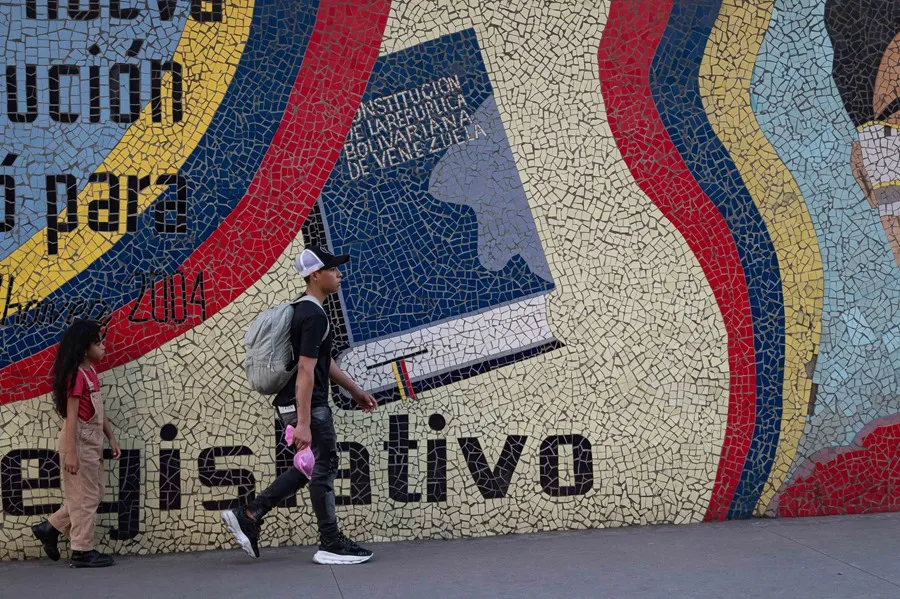
The anti-Chavista party Movement for Venezuela (MPV) denounced on Monday that it was “prevented” from submitting its candidates for the regional and legislative elections on May 25, elections rejected by opposition leaders Edmundo González Urrutia and María Corina Machado.
“MPV, being an active and recognized party in the National Electoral Council (CNE), was prevented from submitting candidates for the current electoral process,” stated the political group through a communiqué on X.
Additionally, the group denounced that its Secretary-General, Simón Calzadilla, was “suddenly disqualified,” as the opposition leader warned last Friday. He also explained that he attempted to access the CNE’s automated candidate submission system but, as he added, the portal showed that he was not authorized to create a user and submit the MPV candidates.
For the party, its “strong decision” to participate in the May elections “highlighted the true nature of this electoral process,” which it described as “extremely flawed.”
International
Maduro Plans Major Workers’ March on May 1st to Defend Venezuela’s Freedom
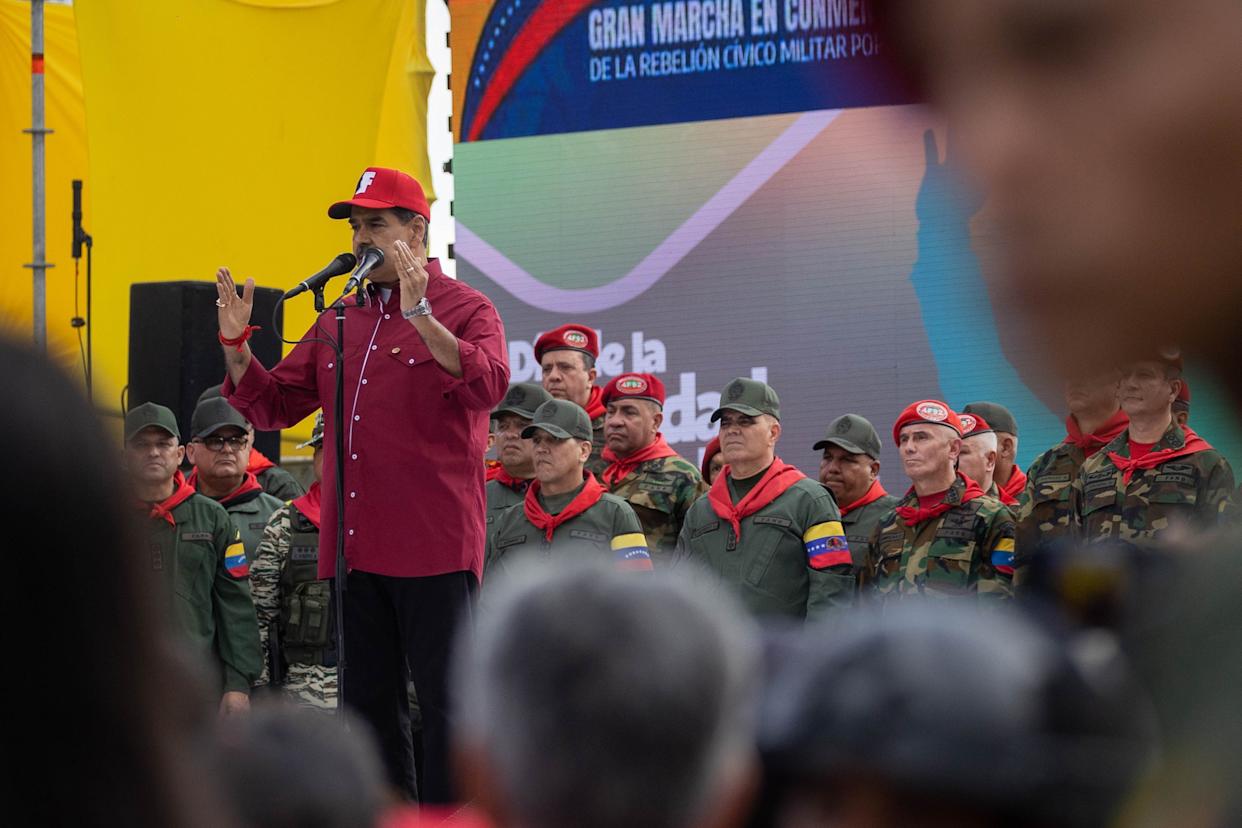
Nicolás Maduro, who swore in for a third term in January following his controversial re-election, called on Monday for the “working class” and the “armed people” to gather for a concentration on May 1st for peace, as part of the celebration of International Workers’ Day.
“Let’s have a powerful march of the working class, the combat bodies, and the Bolivarian National Militia in all the cities of the country, from end to end, working class and armed people in the streets shouting for peace,” said the chavista leader in a broadcast on the state channel Venezolana de Televisión (VTV), surrounded by military authorities.
He also stated that Venezuela is more armed than “ever” to “defend the sacred dream of a free homeland, the sacred soil of a heroic land, Venezuela.”
Maduro called on all military personnel to “stay in shape” with a “deployment capacity” and also to have “a very clear view of the entire national territory.”
-
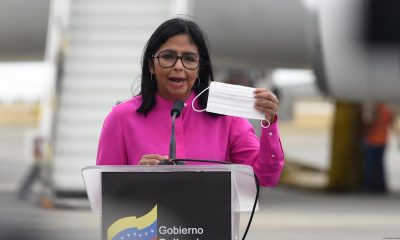
 International3 days ago
International3 days agoVenezuela accuses Guyana of “warlike intentions” after UK defense deal
-
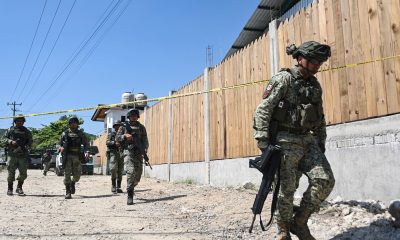
 International4 days ago
International4 days agoTrump Authorizes Military to Take Control of Federal Land Along U.S.-Mexico Border
-

 Central America4 days ago
Central America4 days agoSpanish Ex-Congresswoman Calls for ‘Bukele-Style’ Security Policies in Europe
-

 International3 days ago
International3 days agoNightclub Collapse in Dominican Republic Claims 226 Lives
-

 Central America1 day ago
Central America1 day agoHonduran Police Offer $135K for Tips Leading to the Arrest of Romeo Vásquez
-

 International1 day ago
International1 day agoMaduro Plans Major Workers’ March on May 1st to Defend Venezuela’s Freedom
-

 Central America15 hours ago
Central America15 hours agoPetro questions Ecuador’s vote, cites reports of military control and arrests
-

 International1 day ago
International1 day agoMPV Denounces Electoral Blockade as Secretary-General is Disqualified for May Elections
-

 International15 hours ago
International15 hours agoColombia: Search continues for missing limb of italian scientist found dismembered















